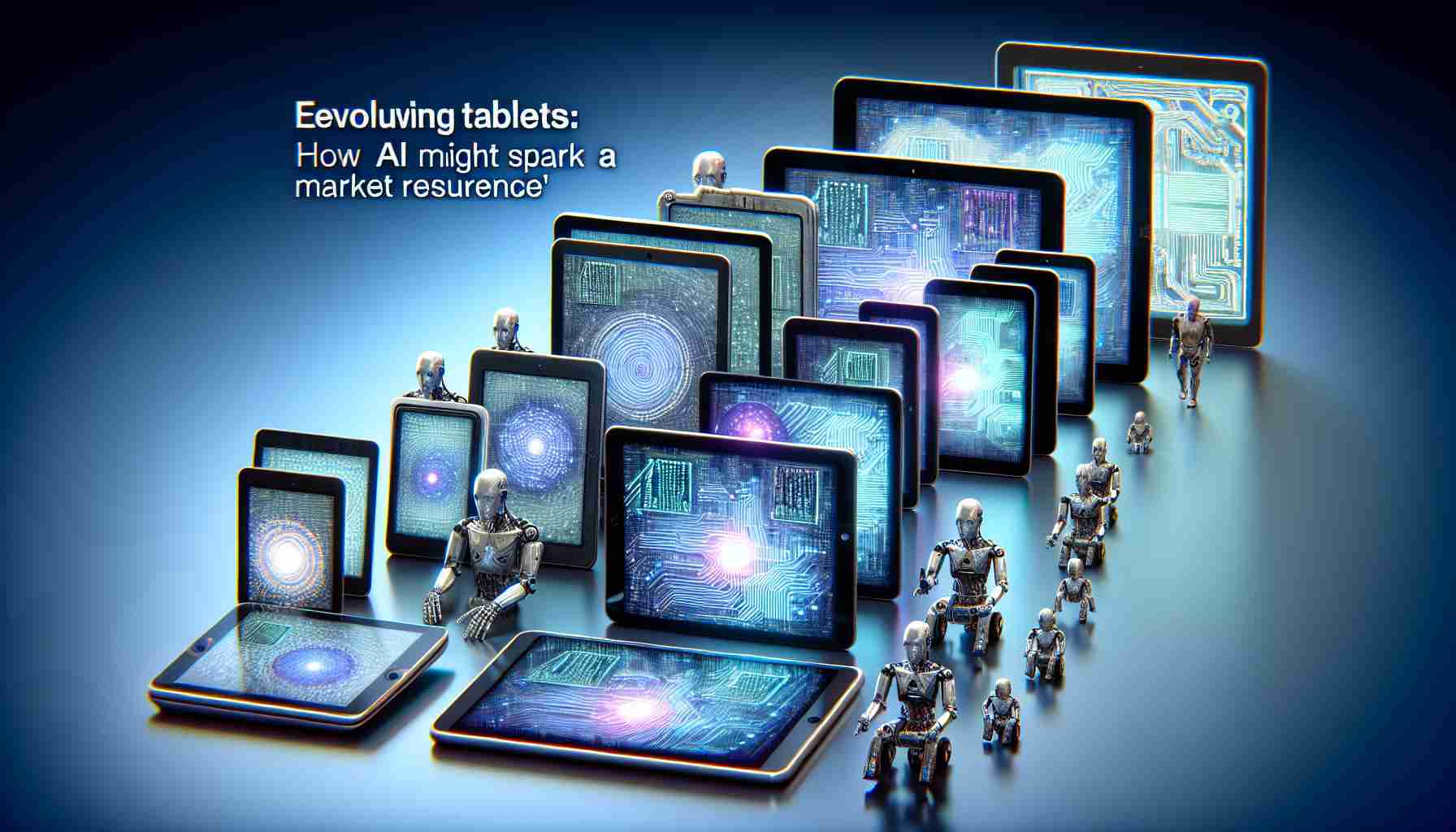Amidst the global landscape of modern technology, a conversation is stirring around the potential for artificial intelligence (AI) to infuse new vitality into the stagnating tablet market. By enhancing how users interact with their devices, tailoring performance to suit individual needs, and creating more personalized computing experiences, AI integration is poised to rekindle consumer excitement and drive forward tablet innovation.
The first quarter of the year saw a glimmer of recovery in tablet sales, as reported by the International Data Corporation (IDC), marking a hopeful turning point after a prolonged period of declining sales. Senior research analyst Anuroopa Nataraj from IDC anticipates that the tablet industry’s resurgence will likely stem from the next generation of product refreshes, particularly through increased adoption in education and among independent contractors in the gig economy.
Nonetheless, intense rivalry with PCs and smartphones casts a shadow over the tablet’s market prospects. This competition is projected to persist, despite a modest uptick of 0.5 percent in global tablet shipments—which totaled 30.8 million units—observed during the first quarter.
Industry leaders are not sitting idle, with Apple set to introduce new iPad offerings after experiencing an 8.5 percent decline in sales, attributed to economic downturns and a wait for new models. Meanwhile, Samsung maintained the second spot in the market, even as it recorded a 5.8 percent decrease in shipments.
Moreover, the tech sector is abuzz with reports of Elon Musk’s X platform adopting a new Grok AI-powered ‘Stories’ feature, promising to distill and highlight trending content for an enhanced user experience. Apple is also taking significant strides in AI, releasing generative models for commercial applications and contributing to the Open-source Efficient Language Models project, showcasing small yet powerful language models. These indicators hint at an exciting, AI-driven future for tablets that could redefine their market position.
Important Questions and Answers:
1. How will AI integration benefit tablet users?
AI integration in tablets is expected to improve user interaction by enabling more intuitive interfaces and predictive typing, offering personalized content and app recommendations, optimizing device performance based on user habits, and enhancing accessibility options for users with disabilities. AI could also add advanced features like real-time language translation and augmented reality experiences.
2. What are the key challenges in integrating AI into tablets?
One key challenge is balancing the power consumption of AI processes with the tablet’s battery life. Tablets are known for their portability, so maintaining a long battery life is crucial. Ensuring user privacy and data security with the increased data processing that comes with AI is another significant challenge. Furthermore, developing AI that provides a genuinely useful and noticeable improvement in user experience over traditional tablets could require significant financial investment and technical expertise.
3. Are there controversies associated with AI in tablets?
Concerns about AI integration often relate to privacy issues, as more personalized services require collecting and analyzing user data. There’s also the potential for bias in AI algorithms, which could affect the user experience. Some individuals may have reservations about AI’s impact on employment, fearing that increased automation and AI capabilities may displace jobs.
Advantages and Disadvantages:
Advantages:
– Personalization: AI can tailor the tablet experience to individual user preferences, improving engagement.
– Efficiency: AI can optimize tablet operations and resources, potentially extending battery life and enhancing performance.
– Accessibility: Improved AI can offer advanced voice recognition, language processing, and other assistive technologies that can help users with disabilities.
– Innovative features: AI-driven features like smart home control, augmented reality, and automatic scheduling have the potential to open up new uses for tablets.
Disadvantages:
– Privacy concerns: Increasing AI functionalities often mean more data collection, which can raise privacy issues.
– Dependence on connectivity: Many AI features require internet connectivity, which could limit functionality when offline.
– Cost: Integrating advanced AI technology could lead to higher prices for consumers.
– Complexity: As tablets become more complex with AI, some users could find them less user-friendly if not designed carefully.
Given the prominence of AI in the tech industry, interested readers can look for more information on the official websites of leading technology companies, like Apple and Samsung, that are at the forefront of both tablet manufacturing and AI development:
– Apple
– Samsung
For updates on AI trends and projects like Open-source Efficient Language Models, websites of technology thought leaders and innovators such as Elon Musk’s ventures could also be of interest, keeping in mind to refer to the most credible sources for the latest information.
